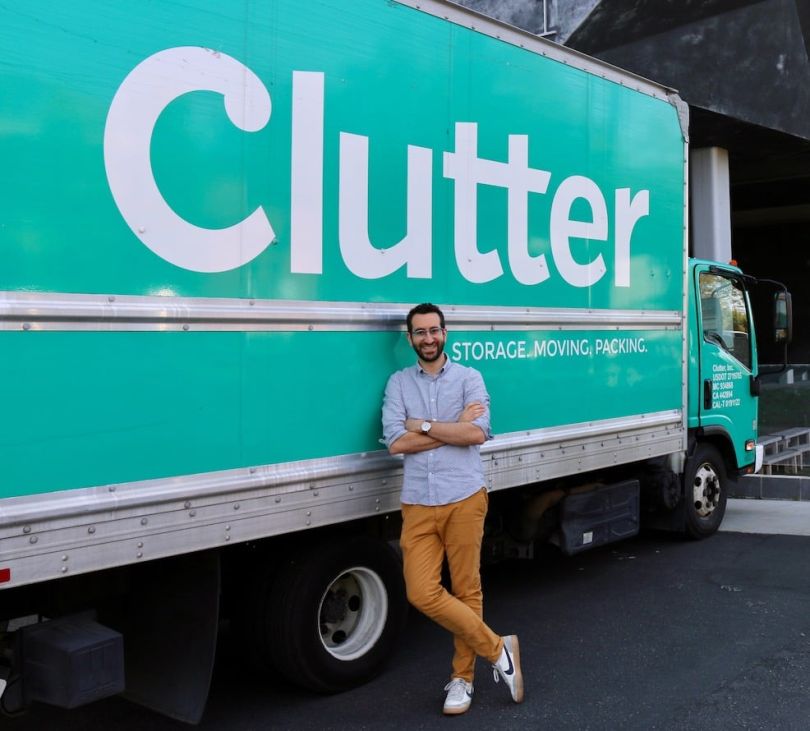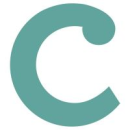When Rony Kort, VP of Talent at Clutter, was facing a transitional period in his career three years ago, he admittedly didn’t wake up one day thinking, “I’m joining a self-storage competitor.” But as the former management consultant scouted early-stage opportunities in the LA startup space, he found that Clutter checked three major boxes. The company was (and is) consumer-facing, well-funded and disrupting a traditional, antiquated industry.
Kort said that one of the key traits Clutter CEO Ari Mir looks for in all people managers is their ability and desire to build high-performing teams. Mir saw that in Kort, who started as Clutter’s chief of staff and now oversees everything people-related. But Kort doesn’t attribute his success to one strategy or mentor alone.
“Everything in the people space is a delicate ecosystem,” said Kort. “Something that works at one organization in a vacuum is not guaranteed to work in another.”
He derives inspiration for attracting and retaining talent at Clutter from books, Harvard Business Review articles and conversations he has with others in the HR space, including talent leaders from organizations in the Sequoia, SoftBank, GV (formerly Google Ventures) and Atomico portfolios.
“People are responsive and open to chatting to individuals who are seeking nothing but a sounding board,” said Kort.
Based on fresh insight coupled with previous work experience, Kort shared why managers shouldn’t onboard the “perfect hire” 100 percent of the time, and why his team prioritizes aptitude over relevant experience.

Tell us a little bit about your background. What drew you to Clutter?
I’ve been at Clutter for two-and-a-half years and spent most of that time focusing on our people. I have a non-traditional background in this space. I started my career in finance back in New York. After business school, I went the management consulting route, spending two years at The Boston Consulting Group (BCG) in London. In the process, I discovered that I am much more of an early-stage builder than a late-stage operator. So I got the startup bug and decided to make the transition.
I wanted to join a startup that was consumer-facing. I was looking for a startup that was fairly well-funded, because I didn’t have the risk tolerance for seed-stage companies, especially coming out of business school. And most importantly, I was looking for a startup that was disrupting a previously existing industry that had not been touched by technology, similarly to Netflix and Amazon.
So I mapped out the startup scene and found Clutter. The team pitched me on joining as chief of staff to our CEO. In that role, I spent a lot of my time thinking about attracting, motivating and retaining our team members. Ultimately, Ari asked me to build a talent acquisition team in-house so we could stop relying on third-party recruiters.
How do your past experiences influence the work you do at Clutter?
The most valuable skill I learned in consulting at BCG is how to learn quickly and practically. You could, on a Friday, be staffed on a new case for Monday focusing on an industry and a client that you knew nothing about. By the end of the project, you were expected to make recommendations to a team of experts who were often made up of senior members of the executive team. So you didn’t have the luxury of time. And that’s been really helpful for me.
I’ve approached every challenge at Clutter in a similar fashion of absorbing as much information as possible, asking the right questions and looking at the data I need in order to make an informed decision. Not having an ego about my experience has helped me with the learning process. I’m not trying to come in and assert myself as an expert. I’m really just trying to reach the best decision based on the journey.
The most valuable skill I learned in consulting at BCG is how to learn quickly and practically.’’
Pinpoint an aspect of Clutter’s approach to hiring that’s different from those at other tech companies.
We often prioritize aptitude over relevant experience. We really focus on a number of underlying traits that we look for in all team members. This allows us to build diverse and high-performing teams that can scale.
For example, I recently hired a tech recruiter who’s a couple of years out of undergrad with an economics degree. We hired him because he’s demonstrated strength along the dimensions that we look for in all team members, specifically problem-solving, execution, agility, collaboration, communication and time management.
He recently pivoted from being a tech recruiter to being a product analyst, which is a very technical role. If you were only to hire people based on their undergrad degrees or relevant experience, you wouldn’t give individuals like this tech recruiter a chance.
What’s one thing you have learned about people you didn’t know before becoming VP of talent?
The cost of hiring the wrong person is unimaginably high. Keep the bar high even when you’re desperate. It’ll pay dividends in more ways than you can imagine in terms of performance, output, culture and team-building.
Hiring the right people is our strongest selling point. The majority of the individuals we bring on talk about the people being the most compelling component of the employee value proposition.
Also, you cannot (and you don’t want to) get it right 100 percent of the time because you’ll actually get a lot of false negatives. You want to aim for a 90 percent success rate. But when you realize that you’ve got it wrong, you have to move quickly.
What separates a medium-performer from a high-performer and how do you measure it?
We look for what we describe internally as “10Xers”. That refers to the productivity gap across different workforces. The gap increases with the job’s complexity. So you can imagine that there’s a bell curve distribution of performance for every role. And the bell curve is widest for more complex and more technical roles, many of which we hire for at Clutter. So it’s really important that we hire really strong individuals.
There’s a Steve Jobs quote that we really relate to, and it goes like this, “Go after the cream of the cream. A small team of A+ players can run circles around a giant team of B and C players.”
How do you stay competitive in an applicant’s job market?
We think a lot about the employee lifecycle and it starts with the talent team. Then it migrates over to the people ops team, etc. It’s such a competitive market that you can’t be everything to everyone. So we’re transparent about who we are. And then we spend a lot of time thinking about the key reasons that people are excited about joining Clutter. We really lean into these things.
The four components that disproportionately drive a candidate’s decisions to join Clutter include meaningfulness of work; growth, given our hiring philosophy, there are frequent and numerous opportunities for both personal and professional growth; rewards, which I would describe as cash, compensation and benefits; and upside. Every team member at Clutter has skin in the game. We give every employee options, regardless of the role or function they work in.
The cost of hiring the wrong person is unimaginably high.’’
What would Clutter employees say has been a significant contributing factor to their professional growth and why?
Because we keep the bar so high, we are comfortable giving our team members ownership and creative liberties early on, which allows them to rise to the occasion. That faith allows us to give our team members a lot of opportunities for growth. And because we prioritize aptitude over experience, we have a much more fluid definition of roles and responsibilities. We are very supportive of internal mobility.
We simply look for the triangulation of three things: what are you good at, what are you excited about and what are the needs of the organization? And to the extent that we can align those three things, we’re comfortable with people moving around to new roles within their existing functions or into new functions altogether.
What are your hiring goals in 2020?
This year, we’re increasingly looking for more specialized roles, especially across product, engineering and marketing. When the teams were leaner and scrappier, we hired more generalists. But now that the teams are becoming more sophisticated, we’re looking for additional specialists who are generally highly technical.





